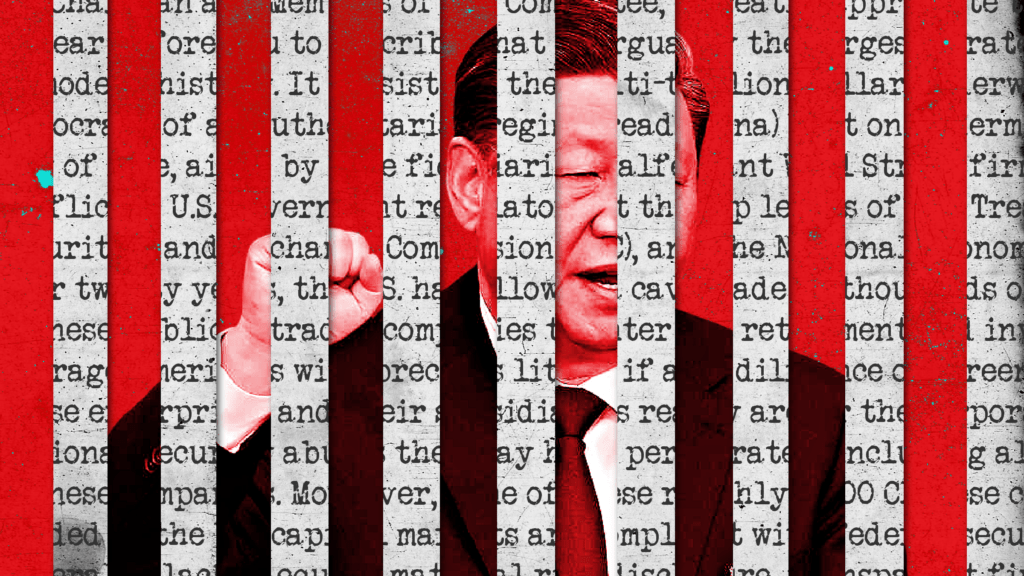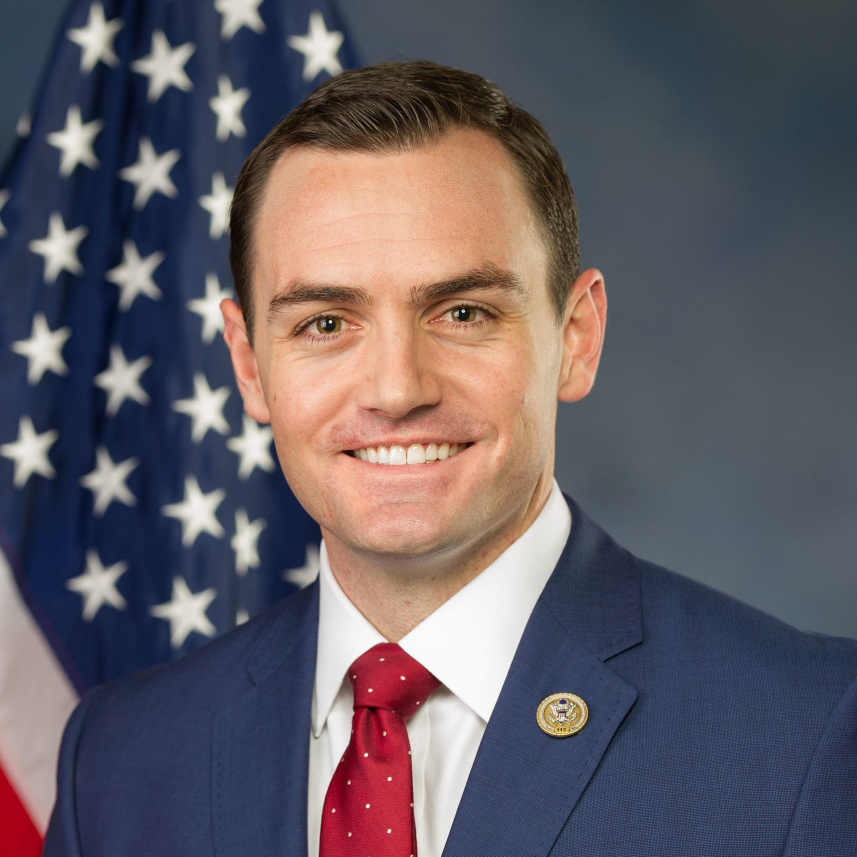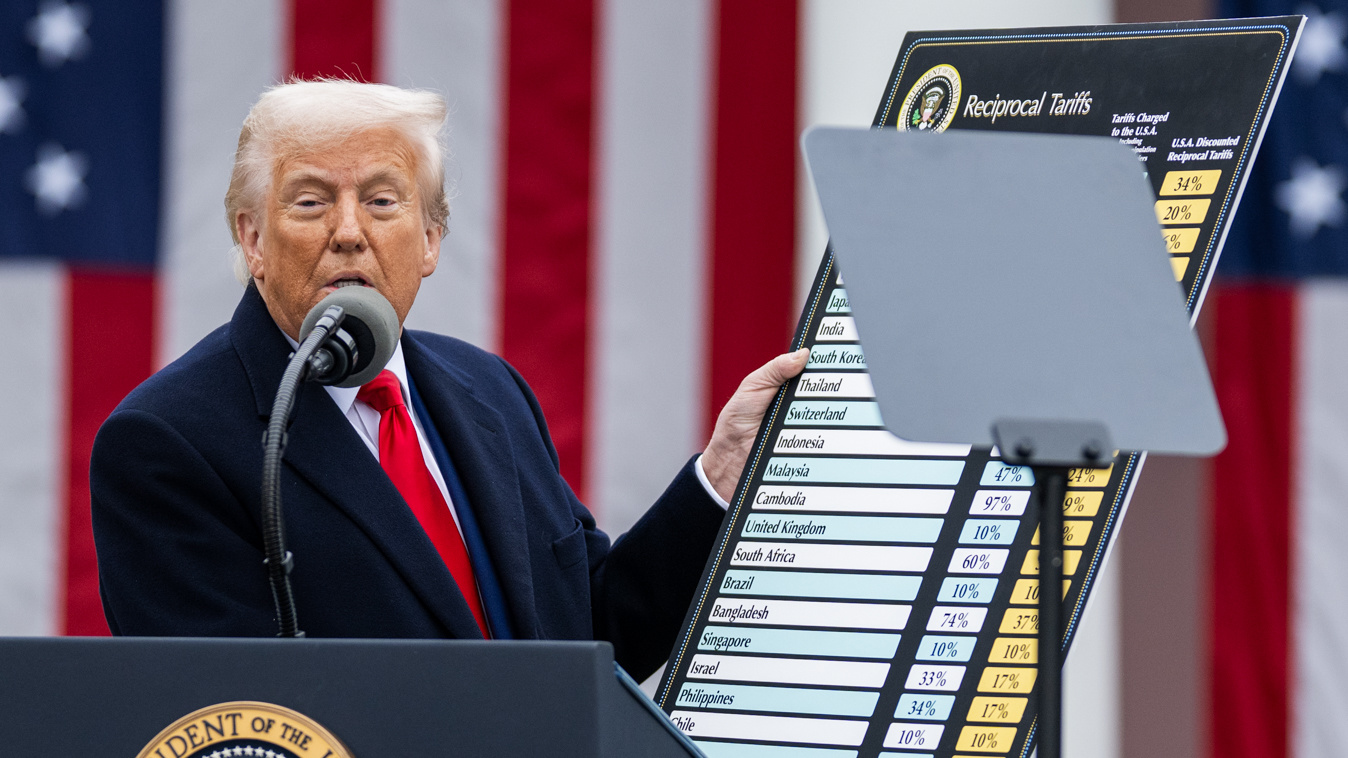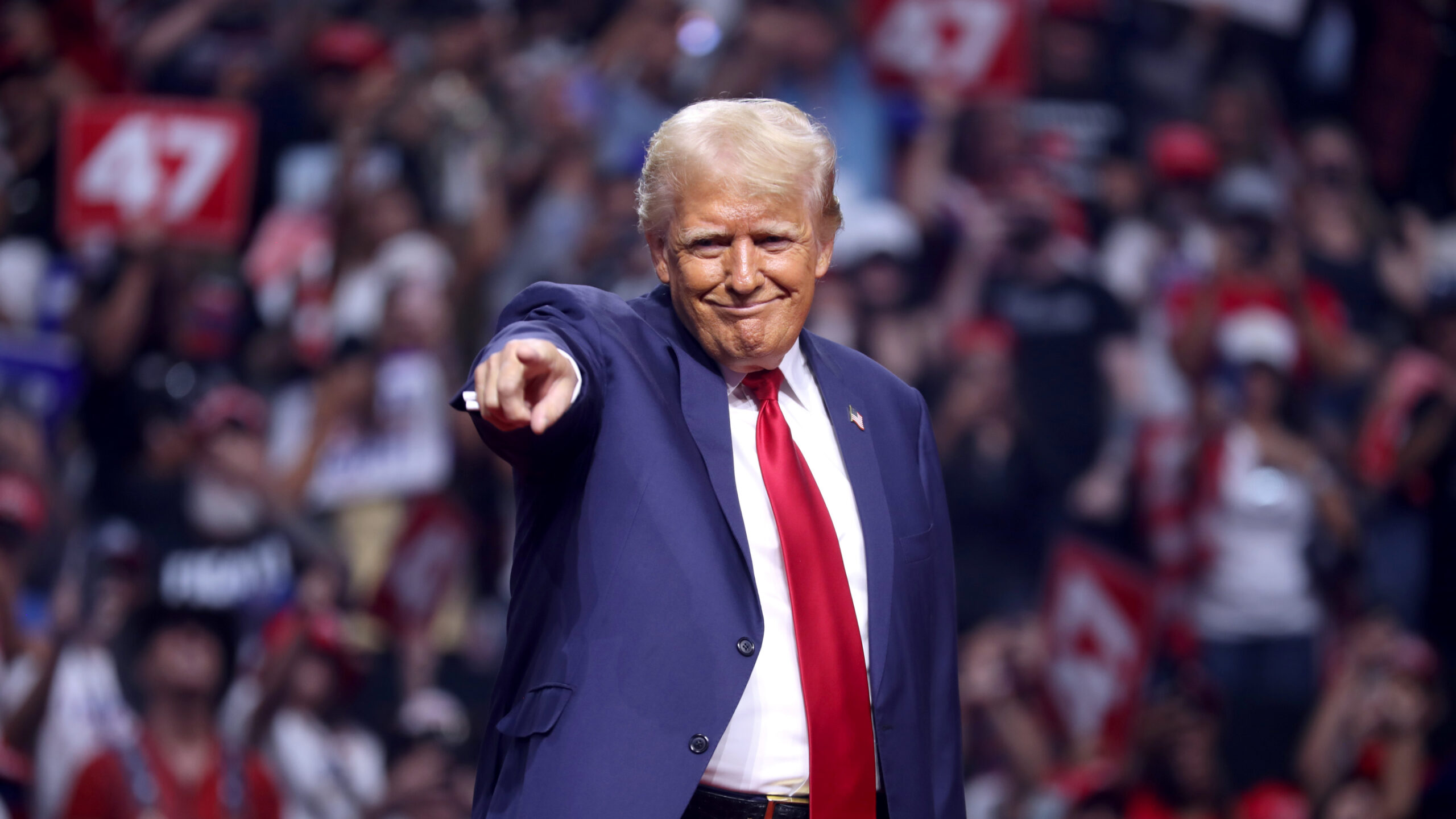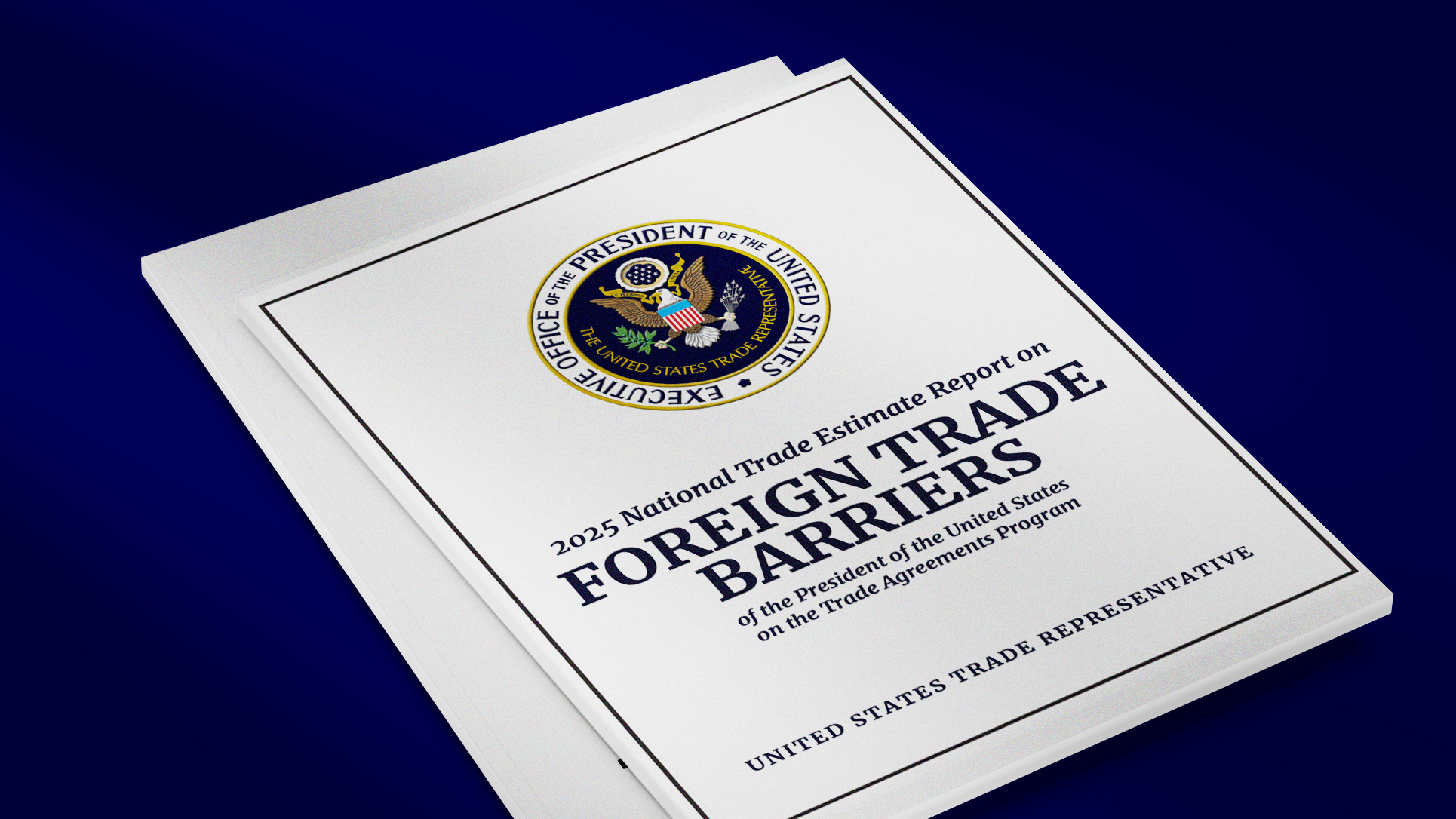This past May, in testimony before the House Select Committee on the Chinese Communist Party (CCP), CPA’s Roger Robinson, Jr. delivered a comprehensive examination of how U.S. investor capital is being used to fund China’s malign activities that directly threaten U.S. economic and national security.
The hearing, titled “Leveling the Playing Field: How to Counter the Chinese Communist Party’s Economic Aggression,” examined how the CCP funds its economic aggression and policies that Congress and the Executive Branch should pursue to counter this threat.
Robinson is an advisor to the Coalition for a Prosperous America (CPA), former National Security Council (NSC) Senior Director of International Economic Affairs for President Ronald Reagan, and former Chairman of Congressional U.S.-China Economic and Security Review Commission.
The following are answers from Robinson in response to questions for the record from Members of the House China Select Committee. You can read Robinson’s oral testimony here and his written testimony here.
Questions for the Record: Participants
Questions from COMMITTEE REPUBLICANS:
(Chairman Mike Gallagher)
In your testimony and during the hearing, you discussed the harms to our national security and to the security of government employee retirement funds from TSP investments in our adversaries and the importance of ceasing such investments. Does a similar logic apply to employee retirement plans guaranteed by the federal government under ERISA?
The short answer is “yes”. The legislative goals that I support in the provisions of H.R. 3455, the “TSP Act”, reflect the kind of approach that I believe is warranted regarding ERISA plans. A good first step to address these plans exists in the legislation, “Protecting Americans’ Retirement Savings Act” (PARSA), H.R. 4008, although I believe an even broader approach to Chinese companies is required.
Essentially, the PARSA bill requires employee retirement plans under the Employee Retirement Income Security Act of 1974 (ERISA) to cease purchasing all new investment interests in, and transactions with, companies based in, or otherwise directed or controlled by, officially recognized foreign adversaries like Russia and China. It would also require new risk-related disclosures for continuing to hold the securities of such companies, both in aggregate and for specific companies included on various U.S. “Blacklists”.
Ultimately, the securities of all companies owned or controlled by foreign adversaries of the United States should be excluded by law from ERISA plans. It is outrageous for American taxpayers to be on the hook for the potential failings of the corporate securities of our avowed adversaries, not to mention the malevolent national security and human rights abuses they often underwrite.
In your testimony, you referred to U.S. holdings of Chinese sovereign debt and referred to it as “discretionary cash.” Do you have an estimate of the total exposure of U.S. citizens to PRC debt? What are the principal risks associated with these holdings?
The Rhodium Group estimated in a 2021 report that American investors were holding some $100 billion in Chinese debt securities. This number strikes me as well below the true level of U.S. investor risk exposure to Chinese debt securities, but this matter has not yet been independently researched by my team. To its credit, Rhodium pointed out that Chinese enterprises use “complex legal structures to issue shares out of tax havens that trade on US exchanges. These practices continue despite legal peril in China and US regulatory pressure.” (Note: This estimate also does not account for a potentially huge sum — when including compound interest and penalties – of defaulted Chinese gold-backed sovereign debt held by U.S. bondholders from the period preceding World War II, under the successor government doctrine.)
A better gauge of such risk exposure is, however, likely found in the total estimated holdings of Chinese debt by U.S. bondholders – be it through dollar-denominated or local currency bonds. According to The Bank for International Settlements – the central bank of central banks – this amount is more than $1 trillion, but most of it would be held around the world (including China, Hong Kong, Japan, etc.).
Standard and Poor’s estimates the size of the Chinese domestic bond market at some $20 trillion, 3%-4% of which is held by foreign investors, but that is number is expected to increase rapidly, driven by “the size of the bond market, regulatory openings and yield differentials, and finally the diversification offered by the market’s low correlation with other global assets”. This could mean that U.S. investors may be holding as much as $200 billion or more in Chinese dollar-denominated bonds at this time.
That said, this should not be largely private sector guess work. There is no excuse for the USG not having a firm handle on these precise risk-exposure numbers at all times for national security reasons, as well as American investor protection concerns. It is important to track all debt holdings regardless of their currency because a default on any would be equally detrimental.
Finally, we should be very worried about the potentially explosive growth of U.S. investor risk exposure to the domestic Chinese bond market. Underscoring this concern, S&P observes, “we believe foreign investor holdings of Chinese domestic bonds, now worth roughly US$650 billion, has the potential to expand to US$4 trillion-US$5 trillion by 2030”.
As stated above, the Treasury Department, the SEC, and the National Economic Council should be tracking these figures (as well as equity risk exposure) and regularly reporting them to relevant Congressional Committees, including your Select Committee on the CCP, foreign affairs, intelligence, and armed services, as these numbers represent discretionary American cash going directly into the coffers of the Chinese Communist Party for its military modernization, construction of a surveillance state, espionage, technology/IP theft — and a long list of other malign activities. There are no underlying trade transactions or projects involved that strictly discipline and/or limit the use of bond proceeds.
To my knowledge, no such official, security-minded Chinese financial reporting is taking place today, nor is the Executive Branch publicly reporting aggregate U.S. risk exposure to Chinese equities or debt issuances from a national security perspective, which should be viewed as both perilous and unacceptable. The only beneficiaries of such apparent lapses are Wall Street, the CCP, and conflicted government regulatory officials likely to return to private sector positions similar to the ones they left to serve in government.
This lack of reporting spurred my efforts to promote legislation that would help remedy this shortfall during the processes of the USICA and COMPETES Acts last Congress that ultimately ended up with the so-called CHIPS Act. Regrettably the reporting requirement language that would have started to rectify this situation was stripped out of the final CHIPS Act that became law, leaving a comprehensive report on the presence of Black-listed and other Chinese corporate “bad actors” still present in our capital markets on the cutting room floor.
Our country must start playing offense financially, which means knowing precisely where American investor dollars are going vis a vis China, cutting off the flow of investor funds to Chinese corporate “bad actors” and the CCP itself (via the issuance of sovereign bonds), making proper use — for the first time in U.S.-China relations — of the immense American leverage offered it by our utter dominance of the global financial system, and establishing a “Sixth Domain” of American warfighting — the Economic and Financial Warfighting Domain.
The principal risks associated with these sovereign CCP bond holdings by American investors – which I refer to as “Anti-Liberty Bonds” – are, of course, very similar to those related to Chinese equity holdings and are outlined in my written testimony to the Committee. They include:
- Not one of the roughly 5,000 Chinese companies listed or traded on U.S. exchanges is compliant with U.S. federal securities laws, including Dodd-Frank;
- Some 95% of Chinese enterprises listed on the NYSE and NASDAQ are scandalously structured as Variable Interest Entities (VIEs), involving substituting the actual shares of Chinese companies with the shares of shell company contracts in the Cayman Islands with no actual Chinese stock changing hands, no minority shareholder rights and very limited, if any, legal recourse for U.S. investors;
- China engages in little, if any, material risk disclosure, corporate governance, risk management or the rule of law — standard requirements for their American and other Western corporate counterparts. The CCP is also stepping up harassment of American and allied due diligence and research firms and auditors, such as Bain and Co., the Mintz Group, Deloitte, Ernst & Young, and others. The CCP is likewise shutting down Western access to traditional Chinese databases like Wind Information and Capvision and seeking to blind, to an even greater extent than is already the case, U.S. asset managers, index providers and average investors by criminalizing standard market diligence and research activities by Western firms. Even the U.S. Chamber of Commerce has stated that this recent Chinese offensive against Western professional services firms “dramatically increases the uncertainties and risk of doing business in China”;
- Article 7 of China’s National Intelligence Law of 2017 permits the “weaponization” of all Chinese enterprises for strategic purposes, such as espionage and PLA activities, at the discretion of the CCP. This entirely negates the view that Chinese companies can be considered purely commercial, benign entities;
- The CCP has required all companies in China to establish Communist Party cells in their senior management structures, possibly including foreign-owned Chinese firms, which completely refutes the long-held argument that China possesses true “private sector” companies;
- China’s real estate crisis — implicating some 30% of GDP, as much as half of the annual revenues of the provincial governments, some 40% of all bank lending and roughly 80% of the net worth of the Chinese population — remains an asymmetric risk to Western investors with little transparency on how this ticking economic bomb will be defused, if it is even possible. Chinese local governments are now saddled with some $9 trillion in debt, with few avenues of escape, beyond a central government bail-out;
- China’s economic growth model of infrastructure investment and a massive accumulation of debt to stimulate demand has largely run out of gas and cannot be offset by relatively anemic consumer spending as a percent of GNP (some 50% versus more than 70% for most G-7 countries). In short, China will likely not be able to grow its way out of a debt overhang of more than 300% of GDP, putting U.S. retail investors at greater risk;
- China is officially recognized by the United States as a malevolent, “bad actor” country —– witness its “no-limits” partnership with Russia and client state relationships with North Korea and Iran — that will likely take more aggressive actions against U.S. strategic interests in the Pacific (e.g., the South China Sea) as well as potentially move ahead with the forced reunification with Taiwan in the relatively near term. Accordingly, the CCP’s “old friends” on Wall Street are having an increasingly difficult time justifying their large-scale risk exposure to Chinese securities, including those of U.S.-sanctioned enterprises. For over two decades, China and its U.S. financial supporters have avoided any granular policy scrutiny by the American national security community, the Congress, the media and others. Hopefully, these dark days are rapidly coming to an end;
- Over the course of 2023 and 2024, Beijing, Wall Street, and certain conflicted American government regulators will likely be subject to the introduction of bipartisan Congressional legislation designed to make it illegal to: 1) hold the securities of “U.S. adversaries” (including Chinese publicly traded companies) in the International Fund of the federal Thrift Savings Plan; 2) continue China’s use of Variable Interest Entities as vehicles to list on U.S. exchanges; 3) continue including non-U.S. regulated Chinese “A share” companies in U.S. indices and the investment products benchmarked against them; 4) continue the issuance of Chinese dollar-denominated sovereign bonds, directly funding the CCP via the proceeds of these “Anti-Liberty” bonds; and 5) hold U.S.-sanctioned Chinese companies in U.S. investment portfolios;
- President Xi Jinping continues to serve as a one-man wrecking ball for the CCP, particularly vis-à-vis China’s relationships with its U.S. and allied capital markets facilitators. His deep distrust and paranoia toward all things viewed to be threats to the primacy of the CCP and its hold on power will likely negate a number of measures designed by some of his more market-wise colleagues to elevate the comfort level and risk appetite of U.S. and allied investors (witness the new CCP effort to criminalize standard diligence and business information-gathering) by Western professional services companies.
Other related risks include:
- Reliance on dollars, euros, yen, and pounds for foreign exchange reserves caused by a lack of internationalization of renminbi;
- An undeveloped corporate debt market;
- An undisciplined and erratic retail investor base;
- An overleveraged and overinvested real estate market sector;
- CCP reluctance to allow “national champions” that could one day challenge its hold on power;
- CCP unwillingness to adopt GAAP and PCAOB standards;
- An undue reliance on U.S. know-how for capital markets execution;
- A Chinese government tendency to intervene and manipulate market outcomes; and
- A “low trust” culture which pervades Chinese capital markets and the perceived and real risk of fraud.
In sum, it is foolhardy for the U.S. government to continue to permit any American institutional and retail investors worldwide to hold dollar-denominated — or yuan-denominated — Chinese sovereign bonds issuances, as it represents the single most direct American financial underwriting of the foremost existential threat ever faced by the United States.
In recent years, Congress has worked to strengthen the Public Company Accounting Oversight Board’s oversight of Chinese firms, but serious questions remain about whether U.S. investors have incomplete information about Chinese firms in which they invest. What more can Congress do to tighten PCAOB and SEC accountability and to enforce a fair and comparable regulatory regime?
Congress can — and must — do a good deal more in the way of accountability, enforcement and tightening of the existing regulatory regime. Let me be clear: PCAOB oversight of Chinese securities in our capital markets has basically been a sham since its inception, particularly since the scandalous May 7, 2013, signing of a Memorandum of Understanding (MOU) enforcement agreement between the PCAOB/SEC and the China Securities Regulatory Commission (CSRC), which, in effect, waived U.S. government audits of highly suspect Chinese auditing firms for an indefinite period of time until a “work-around” could be crafted.
This inexplicable concession to Beijing during the Obama Administration granted Chinese companies preferential treatment over their American corporate counterparts — and all other foreign jurisdictions globally who were required to reach enforcement agreements for audits to be reviewed by the PCAOB in exchange for access to listing on U.S. exchanges pursuant to the implementation of the Sarbanes-Oxley Act) — in the U.S. capital markets and wrongfully permitted the CCP to raise hundreds of billions of dollars or more from unwitting U.S. retail investors in the intervening decade.
Belatedly, the Congress unanimously passed the Holding Foreign Companies Accountable Act in December 2020, but it only applied to some 260 Chinese companies listed on the New York Stock Exchange and NASDAQ and delists Chinese enterprises only after 3 years of consecutively missed PCAOB audits. Three years is a lifetime in this business and was clearly the result of heavy Wall Street lobbying on Capitol Hill and within the Executive Branch. While language in the law could have covered the Over-the-Counter (OTC) market and “other methods of trading”, its interpretation and implementation neglected to include/cover some 900 Chinese companies in the Over-the-Counter markets and some 4,000 Chinese “A Share” companies littering U.S. indices and those investment products benchmarked against them. In short, it was a welcome start, but woefully inadequate, hence why it was embraced by the SEC and Treasury and viewed as tolerable by Wall Street.
Trusting the PCAOB, the SEC, or the Treasury Department to fix this glaring, permissive loophole has already shown itself to be fanciful, witness the tortured, opaque, and ineffective “work-around” configured by the PCAOB and announced with great fanfare in December 2022. This “work-around” consists of new, dubious, and ineffectual processes to “inspect” Chinese audits without ever going to mainland China, accepting “group audits”, and only utilizing often-conflicted U.S. and U.K. audit firms to properly inspect the innerworkings of these CCP-linked companies.
To truly protect American investors, our national security, and human rights policies, Congress should take the following actions:
- Pass legislation that henceforth requires U.S. index providers and asset managers to address and fully disclose the material risks associated with Chinese companies they select to include in their indices and investment products (amazingly absent today);
- Pass a new, more comprehensive version of the Holding Foreign Companies Accountable Act (HFCAA), adding OTC traded Chinese companies and “A Share” companies and which requires the delisting, de-registration and complete removal from our exchanges of any Chinese companies traded in the U.S. capital markets (including directly listing on U.S. exchanges or trading via Exchange-Traded Funds (ETFs) and other passive investment products) within 180 days, in the absence of standard and transparent PCAOB audits of the type required for U.S. and other foreign firms;
- Compel the SEC and other U.S. government regulators to require more information disclosure for investors and fiduciaries regarding the geographic location of companies, their industries or sectors, the presence of companies on any and all official sanctions lists and other national security, human rights and political risk factors;
- Harmonize U.S. sanctions policy regarding Chinese companies to close existing gaps between different sanctions lists and ensure that any U.S.-sanctioned Chinese company is automatically excluded from any presence on U.S. exchanges (including passive investment products) and that American persons worldwide are prohibited from holding the securities of the offending company; and
- Establish a new, official list of known Chinese corporate human rights abusers, so that these enterprises can be denied access to our debt and equity markets and prohibited by law from their securities being held by American persons worldwide.
I have provided additional conditions for the securities of Chinese companies to be listed or traded on U.S. exchanges and for their securities to be held by American institutional and individual investors in my written testimony.
Should the United States curtail investment into China, would other countries backfill? That is, what are the available sources of capital outside of the United States? And would the United States be unduly harming American investors by restricting the outflow of capital?
Many detractors of a prudent, rules-based, disciplined, security-minded and values-driven approach to China’s access to our capital markets — who wish to permit the wrong sorts of Chinese enterprises to remain where they are — rush to argue that if the U.S. tightens such access in the ways mentioned that it will simply cause Chinese companies to seek capital elsewhere, while damaging globally the competitiveness and reputation of our exchanges. The problem with this set of well-worn arguments is that they are basically alarmist and false.
First, there is no “elsewhere”; it is difficult to imagine China meeting its annual, hard currency capital requirements absent the U.S. capital markets, the deepest and most liquid in the world. Annual data from the World Federation of Exchanges show that U.S. stock markets represent nearly 43% of the $96 trillion in global equity market capitalization, three times as much as the China and Hong Kong markets combined. The U.S. bond market comprises nearly 40% the roughly $130 trillion securities outstanding, twice the size of the next largest market, the European Union. The United States, Japan, Australia, Canada, the United Kingdom, and E.U. states combined are nearly two-thirds of global equity market cap and about four-fifths of global fixed income market cap. Other markets lack the volume and depth to handle the Chinese demand for capital and market expertise.
With some 60% of the world’s dollar liquidity, the U.S. has significant leverage to encourage security-minded reforms in global capital markets, as I referenced in my oral and written testimonies. It is not just a matter of money available in the U.S., but an entire financial ecosystem built over the decades, including market research, vast relationship networks, expert advisory services, government influence and the list goes on. In fact, it would be challenging to identify a starker contrast than between the U.S. capital markets and the state-run casinos that pass for China’s domestic equity exchanges, not to mention America’s huge reservoir of private equity. Rather than spread fear that the U.S. exchanges will lose business, Congress should work on a strategy to harmonize capital market reforms globally — starting at home.
Given China’s miserable track record (witness the domestic stock exchange meltdown in the summer of 2015) when it comes to credible, trustworthy, predictable and market-driven financial markets — not to mention its opaque, “Black Box” publicly traded enterprises — it is hard to divine the global financial community blaming us for — at long last — bringing some sanity back to the operations of our exchanges vis a vis China. In the way of analogy, one did not see the world recoil with shock and disappointment regarding America’s belated wake-up call on restricting cutting edge, militarily–relevant technology flows to China or a strengthening of the Committee on Foreign Investment in the U.S (CFIUS) and other security-minded screening bodies.
In short, I do not buy for a moment what will be the predictable, alarmist handwringing of U.S. and other market players that are far more focused on their quarterly bonuses and future fees than they are investor protection, national security, and human rights — with these latter considerations being viewed as “someone else’s job”. As for harming American investors by restricting many unfit Chinese companies from listing or trading in our markets, just the opposite is true. Our nation would be protecting them from large-scale, if not debilitating losses, while we preserve their freedoms, values, and all that they hold dear.
There is an avalanche of current statistics and facts that bear this out, a mere sampling of which are as follows:
- Due to national security risk factors, human rights violations, state control and manipulation of businesses, internal economic instability, political uncertainty and more, China is no longer a lush garden of endless earning potential (if it ever was). The idea that a fiduciary cannot “exit China” without undercutting its obligations to seek the highest returns for investors is now a subject of mirth, if not ridicule. To claim that there is some kind of “duty” to invest clients in China is destructive nonsense;
- Over the last three years, the iShares MSCI Emerging Markets ex-China ETF (without Chinese stocks) has outperformed the MSCI Emerging Markets ETF (with Chinese stocks) by roughly 23% to -3%, respectively – a comparable return of +26% (more than +8% annualized);
- Data released in July 2022 shows that China’s Producer Price Index fell 5.4% year-over-year, at the deepest pace since December 2015;
- Goldman Sachs, in July 2022, downgraded large mainland banks that China deems systemically important to its economy, citing their exposure to local government debt, earnings risk, and interest rate cuts that have squeezed the state-owned enterprises’ profitability; and
- BlackRock Investment Institute added U.S.-China competition to its list of top 10 geopolitical risks for 2022.
To be a good fiduciary entails appropriately managing and minimizing risk in the stewardship of client money. This duty should involve avoiding China, not leaning into it. The risks are sharply increasing, and returns are less certain than ever before. These are the facts of the case, at this writing.
Questions from COMMITTEE DEMOCRATS:
(Representative Seth Moulton)
Your proposals for cutting the vast majority, if not all, of Chinese companies off from US capital markets would undoubtedly have a significant impact on the Chinese economy; however, you failed to quantify that effect. It is vital that policymakers understand the impact of policies before choosing to implement them. What is your numerical estimate of what the impact to the U.S. and Chinese economies would be?
First, it is useful to recall that my proposals related to Chinese companies being granted access to the U.S. capital markets are fully consistent with standard market practices for other foreign participants in our markets, as well as American companies. I am, for example, calling on Chinese companies to: 1) comply with U.S. securities laws; 2) engage in proper material risk disclosure; 3) make public their corporate financials; 4) not be U.S.-sanctions violators with respect to corporate national security and human rights abuses; 5) not be advanced weapons manufacturers and/or with links to the People’s Liberation Army (PLA) and surveillance technologies (which two U.S. Presidents of both political parties have termed a “national emergency” in their respective Executive Orders); 6) be subject to U.S. market regulations, unlike thousands of Chinese “A-share” companies drawn from domestic Chinese exchanges which are today included in the investment portfolios of scores of millions of American retail investors; and 7) permit American ownership of the actual shares of their companies versus shares in the contracts of Cayman Island-based shell corporations, as is the case with Variable Interest Entities (VIEs).
The point here is that my proposals are based on empirical facts anchored in established principles of U.S. investor protection and the preservation of American national security and fundamental values–- not ideologically-driven personal preferences.
Regarding the impact on the Chinese and U.S. economies of a sizeable, if not complete, loss of access by Chinese enterprises to the U.S. capital markets–- of the type which would likely eventuate soon after the first shots were fired in an armed conflict over Taiwan–- it is important to first understand the numbers involved. For example, today it appears that there is not one U.S. official or Executive Branch agency that has answered a key question posed to the USG officials many times in the past: What is the total risk exposure of U.S. institutional and individual investors in Chinese corporate securities and sovereign bonds traded in the American capital markets, including the Over-The-Counter market and Chinese “A-share” companies that are particularly prevalent in U.S. passive investment products (e.g., Exchange Traded Funds, mutual funds, etc.)?
If you or your staff can ferret out such an official estimate, you are doing better than ourselves. We would strongly encourage Congressional offices to work on a bipartisan basis to make the release of this sort of vital information a recurring requirement to be gathered and analyzed by the U.S. security community as well as Commerce, Treasury, the SEC, the National Economic Council and other government agencies. It should also be made public.
I believe that the USG has seemingly not bothered to figure out our national financial risk exposure to China, much less share such an estimate publicly which, in my view, could easily exceed $1-2 trillion. This is a perilous data gap, especially as 100 million or more American retail investors could have their investment exposure in Chinese companies and the government electrocuted in what most experts regard as a relatively near-term shooting war over Taiwan.
How many of the estimated 5,000 Chinese companies in the investment portfolios of the American people are sanctioned by the U.S. for national security and human rights abuses? What are the numbers there? What would be the financial impact of legally eliminating, via legislation, the scandalous VIEs or the unregulated Chinese A-share companies? I agree that these are hugely important questions that seem to defy official responses.
That said, there is a major “de-risking” already underway at this writing among U.S. investors in China due largely to:
- The capricious and ill-considered financial and economic decision-making of the CCP;
- The lack of a sustained “bounce-back” in the Chinese economy after the abrupt lifting of “police state” Covid restrictions (primarily resulting from a collapse in consumer confidence, the drag of the property crisis, and the absence of a large-scale government stimulus package);
- The sheer scale of the real estate downturn and massive debt overhang;
- Chinese security policies designed to criminalize standard due diligence and market research by prospective U.S. and other foreign investors; and
- Numerous other intrusive, unwise CCP interventions that are having the effect of spooking the markets.
As things stand today, I would predict significantly greater volatility in the U.S. capital markets for a 6-12-month period, if the bulk of Chinese companies were legislated out — or otherwise forced out — of the U.S. capital markets, as the markets rebalance and begin to write-down their Chinese risk exposure. The recovery period, however, would be shorter than most imagine, just as was the case with the large-scale dislocation in Europe’s energy markets post Russia’s invasion of Ukraine.
After all, major Wall Street players are — at long last — already starting to recognize that their bets and expectations vis-a-vis gaining “big-ticket” market share within China’s largely closed financial system are not going to work out as planned and will likely be overtaken by market-estranging decisions by the CCP as well as national security, human rights, and investor protection concerns.
Moreover, it is finally dawning on these same Wall Street firms and other fiduciaries that they are facing a major threat to their corporate reputations and brands (including U.S. asset managers, index providers, state public employee pension systems administrators, etc.) of ending up on the proverbial “wrong side of history”, having incurred huge losses while helping financially underwrite the predations of an adversary nation equivalent in many ways to the Soviet Union or Nazi Germany.
In your written testimony, you refer to capital market sanctions as “Beijing’s single greatest non-military fear.” If this is true, the threat of capital market sanctions would provide tremendous deterrent power that would disappear if they were implemented, since doing so would reduce the costs that we are able to impose on Beijing if they take military action in the future. Can you explain how or why America’s deterrence capabilities would be improved by imposing capital restrictions now, as opposed to reserving them as a deterrent against future military action by China?
The U.S. “threat of capital markets sanctions” rings rather hollow after the Biden Administration’s evisceration — via new FAQ’s issued by the Treasury Department hours before full implementation requirements took effect on June 1, 2022, and by the rulemaking process finalized on February 16, 2022 — of its own Executive Order 14032 announced on June 3, 2021. There are currently only some 68 Chinese companies on the NS-CMIC List administered by the Treasury’s Office of Foreign Assets Control (OFAC) — virtually all of them inherited from Trump Executive Order 13959 less than a year before.
Although the Biden Administration indicated publicly that they would be regularly adding Chinese companies to this capital markets sanctions list (including the publicly traded subsidiaries of U.S.-sanctioned and other Chinese corporate “bad actors”), it has not done so. This is, sadly, a clear win for Wall Street, the CCP, and certain conflicted U.S. government regulators at the top levels of the Treasury Department, the SEC, the National Economic Council, and the House Financial Services Committee, but it is a debilitating loss for American investors, our national security, and our fundamental values.
To my knowledge, no U.S. administration has ever used U.S. capital markets access as a deterrent to Chinese malevolent behavior, despite the robust language of two Presidential Executive Orders. Accordingly, China is confident that it will continue to be shielded from such immense American leverage by its “old friends” on Wall Street and within the economic and financial agencies of government.
A fundamental misunderstanding and assumption of the West is that China plays by our rules; that our deterrent theories and international relations models will somehow enable us to predict the regime’s behavior and therefore be able to influence that behavior. That is a prideful assumption. My colleagues and I instead assume that the Party will do whatever is necessary to achieve its goals — much like fascist regimes of the past — and hence why we must stop funding (with U.S. investment dollars) their ability to achieve the more malevolent of these national goals before it is too late. Capital markets sanctions have an immediate impact, but they are also about the future. One does not husband them for a dark, rainy day — as we are financing and accelerating the coming of that day.
Rather than be too late, for example, in seeking to penalize China for initiating military hostilities against Taiwan, let us instead use targeted capital markets sanctions to deny the PLA and PLAN the advanced weapon systems, costly logistics support, and military modernization required to permit such a military foray. Moreover, further delaying the day that our nation sharply curtails its potentially multi-trillion-dollar China risk exposure will create incalculably more financial pain for tens of millions of retail American investors when, not if, things go seriously wrong, as recently was the case for U.S. investors in Russian publicly traded enterprises.
As things stand, U.S. investors are continuing to be “allocated” into investment products by Wall Street asset managers, public pension system administrators, fund managers, corporations and others in Chinese publicly traded companies that are:
- equipping concentration camps;
- trafficking in forced labor;
- aiding the commission of genocide (e.g., surveillance companies);
- militarizing China’s illegal islands in the South China Sea;
- manufacturing advanced weapon systems for the PLA;
- providing military assistance to U.S. adversaries like Russia, Iran, and North Korea;
- engaging in IP and technology theft as well as espionage — and the list goes on.
This is simply unacceptable. Responsible, security-minded policy makers would not allow urgent remedial measures to “slide” to a later date for possible use as a deterrent. Hopefully, it will occur to the Biden Administration to warn Beijing that it will no longer be able save the CCP’s proverbial bacon in the U.S. capital markets, or continued access to American private equity in the event it initiates hostilities against Taiwan. Otherwise, my expectations related to the Executive Branch are, tragically, very modest. The Congress represents the best hope for the prudent and urgent use of this invaluable, untapped area of American leverage vis-a-vis China.
You admit in your testimony that the impacts of “a sudden financial decoupling” would “likely be quite severe.” But you also suggest that we should bar Americans from holding securities in Chinese companies that “[permit] the establishment of Chinese Communist Party cells in their senior management structures” or “are subject to Article 7 of China’s National Intelligence Law which requires, on demand of the CCP, the weaponization of Chinese companies for espionage, military activities, and other strategic purposes,” in no fewer than 180 days. Given that Article 7 applies to every organization in the PRC, these requirements would cover virtually the entire Chinese economy. How would your suggestion not amount to a “sudden financial decoupling” which would thereby lead to “quite severe” impacts?
That is correct, but the duration of substantial market volatility (for example a multi-thousand-point drop in the Dow) would be relatively short-lived, meaning months, not years. Of course, such a downturn largely depends on how much U.S. financial “de-risking” (read decoupling) takes place between now and legislative initiatives and/or military conflict which would prohibit American investors worldwide from holding the securities of CCP-controlled Chinese companies or the Chinese government (i.e., sovereign bonds) and bring private equity investing to a halt.
As stated earlier, the good news is that market recognition is growing that being bullish on China is now — and has been — a misbegotten fool’s errand, just as was helping underwrite the Nazi war machine in the 1930s via Wall Street and other allied purchases of German sovereign bonds and the securities of corporations complicit in equipping and enabling the Third Reich.
Moreover, as official Washington awakens to the vast scale of American investor underwriting of the Chinese Communist Party, it will be politically — and patriotically — compelled to act. The alternative of letting the current status quo persist will likely be viewed as politically unacceptable to the American people on the basis of solid national security, human rights, and investor protection arguments.
You are also correct that I recommended that Chinese enterprises subject to Article 7 of the China National Intelligence Law and/or having Communist Party cells embedded in their corporate senior management structures — thereby compromising their ability to engage in sound commercial decision-making sensitive to shareholder interests — should be excluded from the U.S. capital markets. Respectfully, this is not a mistaken policy recommendation or a cynical excess on my part. It was the CCP that insisted that the first duty of Chinese enterprises — including those publicly traded — be to serve the military and the Communist Party.
If this wrong-headed CCP policy is not reversed, then it is entirely appropriate for these Chinese companies to be excised from the U.S. capital markets and private equity flows and their securities prohibited from being held by American investors worldwide within the time-frame specified. Think about the politics of the alternative of continuing to accept the prospective “weaponization” by the CCP of every Chinese company present in our markets. Yes, there would be front-end financial pain, but such pain would be dwarfed into insignificance by the medium- and longer-term gains of the United States and the Free World.
As I have mentioned earlier, the United States utterly dominates the global financial domain and possesses the majority of the world’s investible capital, the world’s reserve currency, as well as capital markets that are nearly the size of the rest of the world’s combined. In short, China cannot prevail globally, or even regionally, in its epic struggle against our nation without our money — period. Let them think about that.



